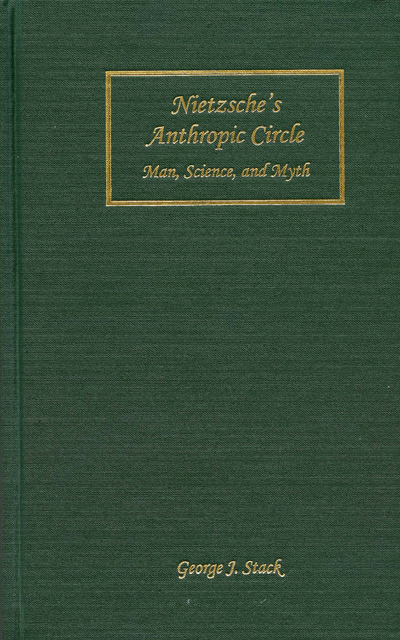Book contents
- Frontmatter
- Dedication
- Contents
- Preface
- Editions and Abbreviations
- 1 Anthropomorphic Projection
- 2 Agnosticism
- 3 A Dynamic Theory of Nature
- 4 Perspectivalism: Knowledge/Interpretation
- 5 Fictionalism in Science
- 6 The Structuralist Perspective
- 7 Evolutionary Epistemology
- 8 Tragic Knowledge and a Will-to-Power Psychology
- 9 The Cosmic Will to Power as Fable
- Notes
- Selected Bibliography
- Index
6 - The Structuralist Perspective
Published online by Cambridge University Press: 23 March 2023
- Frontmatter
- Dedication
- Contents
- Preface
- Editions and Abbreviations
- 1 Anthropomorphic Projection
- 2 Agnosticism
- 3 A Dynamic Theory of Nature
- 4 Perspectivalism: Knowledge/Interpretation
- 5 Fictionalism in Science
- 6 The Structuralist Perspective
- 7 Evolutionary Epistemology
- 8 Tragic Knowledge and a Will-to-Power Psychology
- 9 The Cosmic Will to Power as Fable
- Notes
- Selected Bibliography
- Index
Summary
The fact of the matter is that the “real world” is unconsciously built on the language habits of the group.
Edward Sapir, LanguageAlthough Nietzsche is mentioned in the works of structuralist thinkers and is a strong presence in the writings of Foucault, the precise relationship between his analyses of consciousness, language, and structural analysis has not been delineated. This dimension of the philosophy of this many-sided thinker has been recognized, but not fully explored. Although Nietzsche is not the pure type of structuralist, he is, nonetheless, very much concerned with the uniformity in forms of thought and language that he believes have determined the cognitive-linguistic system of those who think, speak, and write in Indo-European languages. This concern is central to his critical stance in relation to sedimentations of language and thought that he believes have perpetuated a false, but pragmatically useful, conception of the world.
PROTO-STRUCTURAL ORIGINS
In all probability, Nietzsche found the first suggestion of a structural analysis of language in his study of F. A. Lange's History of Materialism. He discovered this work in 1866 and returned to it for inspiration from time to time, specifically incorporating some of its critical analyses into his epistemological notes of the late 1880s. Since we have sufficient evidence that he studied Lange's rich critical history of materialism with great care and praised it as a “treasure-house,” we are justified in looking there for a foreshadowing of his own structuralist leanings.
In the course of examining recent work in anthropology and in the “psychology of peoples,” Lange refers with approval to a study of Bastian’s, Der Mensch in der Geschichte (1830), considered an important contribution to “ethnopsychology” or “pragmatisch Anthropologie.” Specifically, Lange praises Bastian's sympathetic understanding of primitive peoples and his recognition of the complexity and richness of their cultures. What he has to say about the value of Bastian's study is especially interesting in light of the subsequent development of structuralism. He remarks that Bastian saw
that the similarities in the mental condition of peoples, and especially in their mythological traditions, are to be explained, not so much by their descent from a common primitive stock, as by the same psychological disposition, which must necessarily lead to the same or similar creations of superstition and myth.
- Type
- Chapter
- Information
- Nietzsche's Anthropic CircleMan, Science, and Myth, pp. 122 - 145Publisher: Boydell & BrewerPrint publication year: 2005

